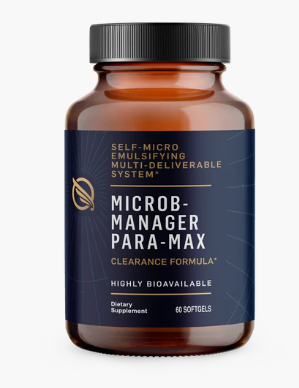Mercury Poisoning Treatment
Are you concerned about the effects of mercury on your health? Mercury is a toxic heavy metal that can accumulate in the body through various environmental exposures, leading to a range of health issues. If you suspect you may have high mercury levels, seeking professional guidance and support is essential. At Five Journeys, we offer a comprehensive approach to mercury poisoning treatment, combining conventional and natural therapies to help you detoxify your body and restore your well-being. We understand the challenges of dealing with mercury toxicity and are here to guide you on your path to recovery.
Key Takeaways
- Mercury poisoning is a serious health issue caused by the accumulation of toxic mercury in the body, often from contaminated fish, dental fillings, industrial exposure, or mercury-containing products.
- Symptoms can affect multiple systems, including the nervous (tremors, memory loss, cognitive decline), digestive (nausea, metallic taste), cardiovascular, respiratory, immune, and developmental functions.
- Early intervention is critical to prevent irreversible neurological and kidney damage, protect fetal development, and reduce long-term toxic burden.
- Preventive strategies include choosing low-mercury fish, replacing old dental fillings, avoiding mercury vapors, and following occupational safety protocols in high-risk environments.
- Personalized self-care supports detox and healing, including hydration, a clean anti-inflammatory diet, sleep and stress management, and functional testing for hidden sources of toxicity.
- Natural remedies are supportive not replacements for medical care. At Five Journeys, we develop safe, tailored plans that blend evidence-based medicine with holistic support.
What is Mercury Poisoning?
Mercury poisoning, also known as mercury intoxication, occurs when your body is exposed to high levels of mercury, a toxic heavy metal. Mercury can enter your body through various sources, including contaminated fish, dental fillings, and certain industrial processes. Once inside your body, mercury can accumulate in your organs and tissues, disrupting your nervous system, kidneys, and other vital functions.
Mercury Disease Symptoms
Mercury poisoning can manifest in various ways, and the symptoms often develop gradually. It’s important to pay attention to any changes in your body and seek medical advice if you suspect you might have mercury overload. The effects of mercury can vary depending on the type of mercury, the level of exposure, and individual factors. If you experience any of the following symptoms, it’s essential to consult with your healthcare provider for proper assessment and testing
Neurological Symptoms
Mercury is particularly harmful to the nervous system. Neurological symptoms of mercury poisoning can include:
- Tremors
- Memory loss
- Insomnia
- Anxiety
- Difficulty concentrating
- Sensory disturbances (numbness, tingling, pain)
- Vision and hearing impairment
- Coordination problems (ataxia)
- Cognitive decline
Digestive Symptoms
Mercury can also affect your digestive system. Symptoms may include:
- A metallic taste in the mouth
- Abdominal pain
- Nausea
- Vomiting
- Diarrhea
Developmental Issues
Exposure to mercury during pregnancy or childhood can have a significant impact on development. Children with mercury poisoning may experience:
- Impaired motor skills
- Reduced cognitive abilities
- Delayed speech development
Cardiovascular and Respiratory Issues
High levels of mercury can also affect your cardiovascular and respiratory systems. Symptoms may include:
- Increased heart rate
- High blood pressure
- Chest pain
- Difficulty breathing
Immune System Effects
Mercury can also disrupt immune function, making individuals more susceptible to certain infections or potentially contributing to immune-related disorders. This is because mercury can interfere with the activity of immune cells and disrupt the delicate balance of the immune system.
Interested in Mercury Poisoning Treatment?
Ask your provider or book a call with us!
Why is Early Mercury Intoxication Treatment Important?
Addressing mercury poisoning promptly is crucial for protecting your health and preventing long-term complications. Early intervention is essential to minimize the potential for chronic symptoms and long-term health effects. Here are some of the benefits of early intervention:
Prevention of Irreversible Neurological Damage
Mercury can cause irreversible damage to the nervous system. Early mercury intoxication treatment can help remove mercury from your body and prevent further neurological damage.
Minimizing Kidney Damage
Mercury can also accumulate in the kidneys, impairing their function. Early intervention can help protect your kidneys and prevent or minimize kidney damage.
Protecting Fetal and Child Development
If you’re pregnant or planning to become pregnant, it’s crucial to address mercury toxicity promptly. Early treatment can help protect your developing baby from the harmful effects of mercury exposure.
Reducing Cumulative Toxicity
Mercury can accumulate in your body over time, leading to chronic health issues. Early intervention can help reduce the cumulative toxic burden and prevent long-term health problems associated with chronic mercury exposure. This is particularly important in light of the shifting focus toward the dangers of chronic, low-grade mercury exposure.
How to Prevent Future Mercury Poisoning
Prevention is always better than cure. A case study of workers dismantling a fluorescent lamp factory highlighted the risks of mercury exposure even in seemingly controlled settings. Understanding the sources of mercury and taking proactive steps to minimize exposure is crucial for protecting your health. Here are some steps you can take to reduce your risk of future mercury exposure:
- Choose Fish Wisely: Be mindful of the types of fish you consume. Some fish, such as swordfish and tuna, are known to be high in mercury due to bioaccumulation. Opt for low-mercury options like salmon, cod, and shrimp.
- Safe Food Handling: Practice safe food handling techniques to prevent contamination. Wash your hands thoroughly before and after handling food, and cook fish to the recommended internal temperature.
- Dental Care: If you have old dental fillings, talk to your dentist about the potential risks of mercury exposure. Consider replacing old fillings with safer alternatives.
- Reduce Exposure to Mercury Vapors: Be cautious when handling mercury-containing products, such as thermometers and fluorescent light bulbs. If a thermometer breaks, follow proper cleanup procedures to avoid inhaling mercury vapors. Dispose of mercury-containing products responsibly according to local guidelines.
- Occupational Safety: If you work in an industry where mercury exposure is a risk, such as mining or dentistry, ensure your workplace follows strict safety measures to minimize exposure. This may include proper ventilation, protective equipment, and regular monitoring of mercury levels.
At Five Journeys, we believe in an integrative approach, combining the best of conventional medicine with evidence-based natural therapies.
Self-Care Recommendations
While medical treatment is essential for managing mercury poisoning, certain self-care practices can also support your recovery:
- Hydration: Drink plenty of water to help flush out toxins from your body.
- Healthy Diet: Focus on a balanced diet rich in fruits, vegetables, and whole grains to support your overall health and detoxification processes.
- Stress Management: Engage in stress-reducing activities like yoga, meditation, or spending time in nature to promote relaxation and well-being.
Natural Ways for Mercury Toxicity Cure
While conventional treatment with chelation therapy may be necessary in some cases, certain natural therapies may offer additional support or be considered as alternatives when appropriate. At Five Journeys, we carefully evaluate your individual needs and health status to determine the most suitable approach, always prioritizing your safety and well-being.
Recent research emphasizes the importance of accurate diagnosis and considering a wide range of treatment options, including emerging therapies and natural approaches, when managing mercury poisoning.
- Dietary changes: Identifying and addressing potential food sensitivities or nutritional deficiencies hindering your body’s natural detoxification processes.
- Herbal remedies: Certain herbs and supplements have been traditionally used to support detoxification and heavy metal removal.
- Lifestyle adjustments: Incorporating stress management techniques and prioritizing sleep to support your body’s overall healing and detoxification processes.
It’s important to note that natural therapies should be used in conjunction with, not as a replacement for, conventional medical treatment. Our team will work with you to develop a personalized plan that combines the best of both worlds.
Why Improve Your Health With Five Journeys?
At Five Journeys, we understand the complexities of mercury poisoning. Our team of experienced practitioners is dedicated to providing compassionate, individualized care that empowers you to take control of your health. Here’s why you should consider partnering with us on your journey to wellness:
Holistic Approach
At Five Journeys, we recognize that true wellness encompasses more than just physical health. We take a holistic approach that considers all aspects of your well-being, including physical, emotional, mental, and spiritual health.
Personalized Care
We understand that each individual is unique, and their health needs are different. That's why we tailor our services to meet your specific needs and goals. Whether you're seeking preventive care, managing chronic conditions, or optimizing your overall health, we provide personalized solutions that prioritize your well-being.
Insurance Accepted
If you’re seeking mercury poisoning treatment or mercury exposure treatment in Boston and Newton, Five Journeys offers a unique and supportive approach. We believe in the power of combining conventional medicine with natural therapies to help you achieve optimal health and well-being. Don’t let mercury poisoning hold you back any longer. Schedule a consultation today and discover how we can help you reclaim your vitality and live your best life.
*Massachusetts law does not allow us to accept MassHealth & Medicaid. Other exceptions may apply.
References
- Do, S. Y., Lee, C. G., Kim, J. Y., Moon, Y. H., Kim, M. S., Bae, I. H., & Song, H. S. (2017). Cases of acute mercury poisoning by mercury vapor exposure during the demolition of a fluorescent lamp factory. Annals of Occupational and Environmental Medicine, 29(1), 19. https://doi.org/10.1186/s40557-017-0184-x
- Ekino, S., Susa, M., Ninomiya, T., Imamura, K., & Kitamura, T. (2007). Minamata disease revisited: An update on the acute and chronic manifestations of methyl mercury poisoning. Journal of the Neurological Sciences, 262(1-2), 131–144. https://doi.org/10.1016/j.jns.2007.06.036
- Rafati-Rahimzadeh, M., Rafati-Rahimzadeh, M., Kazemi, S., & Moghadamnia, A. A. (2014). Current approaches of the management of mercury poisoning: need of the hour. DARU Journal of Pharmaceutical Sciences, 22(1), 46. https://doi.org/10.1186/2008-2231-22-46
- Rice, K. M., Walker, E. M., Jr, Wu, M., Gillette, C., & Blough, E. R. (2014). Environmental mercury and its toxic effects. Journal of preventive medicine and public health = Yebang Uihakhoe chi, 47(2), 74–83. https://doi.org/10.3961/jpmph.2014.47.2.74
- Risher, J. F., & Amler, S. N. (2005). Mercury exposure: evaluation and intervention: the inappropriate use of chelating agents in the diagnosis and treatment of putative mercury poisoning. NeuroToxicology, 26(4), 691–699. https://doi.org/10.1016/j.neuro.2005.05.004
- Ye, B. J., Kim, B. G., Jeon, M. J., Kim, S. Y., Kim, H. C., Jang, T. W., … & Hong, Y. S. (2016). Evaluation of mercury exposure level, clinical diagnosis and treatment for mercury intoxication. Annals of Occupational and Environmental Medicine, 28(1), 5. https://doi.org/10.1186/s40557-015-0086-8
Why we do, What we do...






























